United churches may not intend to be racist, but often create predominantly white spaces in racially diverse areas, according to one church and community innovator.
“I know there are many reasons why a church might come to be all white within a very diverse community, but that is something that people are going to pull the curtain back on,” Jordana Wright said during a United-Church affiliated webinar earlier this month. “When it comes to the United Church, people are going to say, ‘You’re saying Black Lives Matter, let’s pull the curtain back. Let’s see who is in your leadership positions. Let’s see who’s in decision-making positions.’”
You may unsubscribe from any of our newsletters at any time.
The United Church of Canada, like many organizations right now, is on a journey of self-reflection regarding anti-Black racism. As church clergy, members and other laypeople start to do the work to eliminate, or at least reduce, the incidence of anti-Black racism, the number of workshops addressing these issues has increased.
Wright is the founder and managing director of Activate Space in Toronto and the host of the weekly Facebook Live show, United Church Virtual Penpals. She recently invited Michelle Voss Roberts, principal at Emmanuel College, on the show for a live event called “Steps Toward Racial Justice in the United Church.” Nearly 200 ministers and laypeople attended, engaging and sharing resources with one another.
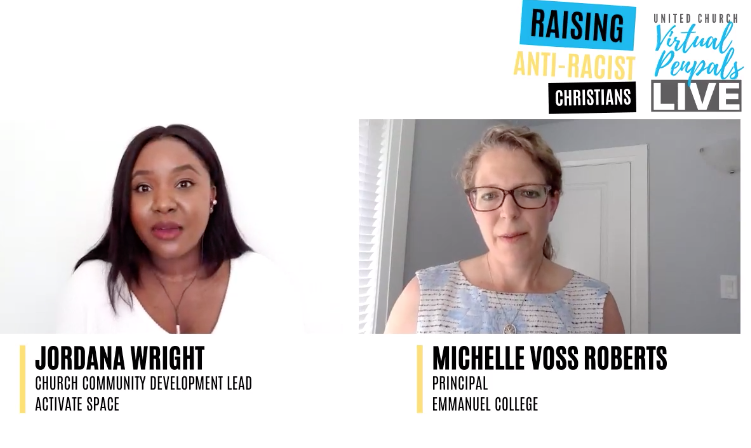
Wright emphasized that it’s not good enough just to read books about race — white people need to connect with Black voices and have conversations with Black people — while Voss Roberts expressed the importance of examining the stories that church committees tell themselves when they make decisions about hiring or handling complaints. “If someone’s spoken up because of an incident, what is it in our context that makes us want to dismiss that or pin it on the person and not the system that they’re pointing to?” she asked.
One thing both Wright and Voss Roberts agreed on was the concept of labour. Now, more than ever, white people are asking BIPOC (Black, Indigenous and People of Colour) for advice, feedback and more. Wright said that while this type of work is part of her job as a community builder and a “builder of vibrant spaces,” that isn’t the case for most BIPOC.
“I think you also need to think about how, in trying to engage on that level,” Wright said, “not placing a burden on that person in addition to everything that they’re facing. So what does that look like to acknowledge that what the person is doing is labour and what does that look like to compensate it?”
For instance, compiling a reading list of anti-Black racism books requires a comprehensive understanding of that literature. Why not donate to the person who put together that list, Wright suggested.
More on Broadview: What I need from white people right now
Finally, both Wright and Voss Roberts pointed out how white people tend to lionize Black people who are fighting oppression. This lifts them out of the realm of humanity, which disregards that they are also getting sick, dealing with mental health challenges and trying to pay their bills.
“I find that dialogue and conversation, at least for me, is one of the most important ways that I’m able to connect deeply with people and their stories,” Wright said, “not just talk about them in the abstract, not just lift them up in that way, but we have to meaningfully find ways to connect with people in the midst of this all.”
Wright emphasized the need to take concrete actions in your own life towards becoming anti-racist. To that end, on June 18, The United Church of Canada’s General Council Executive made a “clear and unequivocal statement” that Black lives matter to The United Church of Canada.
“In particular, we regret that our church has been complicit in racial injustice, and that systemic anti-Black racism still exists within our structures,” the General Council Executive wrote. “The church has not always lived up to its understanding of itself. We are sorry for our inability to hear and respond to the pain of our Black siblings.”
The statement was in line with Wright’s final comment during the webinar. “You have to be able to and willing to accept correction whether you’re the most senior minister at the church or someone who is emerging in their career,” she said. “It is never too late to learn. It’s never too late to listen, to accept correction and I feel like it’s so important to demonstrate that ability to listen and learn to others around you and not to be stuck in your ways.”
Glynis Ratcliffe is Broadview’s senior writer.
I hope you found this Broadview article engaging. The magazine and its forerunners have been publishing continuously since 1829. We face a crisis today like no other in our 191-year history and we need your help. Would you consider a one-time gift to see us through this emergency?
We’re working hard to keep producing the print and digital versions of Broadview. We’ve adjusted our editorial plans to focus on coverage of the social, ethical and spiritual elements of the pandemic. But we can only deliver Broadview’s award-winning journalism if we can pay our bills. A single tax-receiptable gift right now is literally a lifeline.
Things will get better — we’ve overcome adversity before. But until then, we really need your help. No matter how large or small, I’m extremely grateful for your support.
Jocelyn Bell
Editor/Publisher

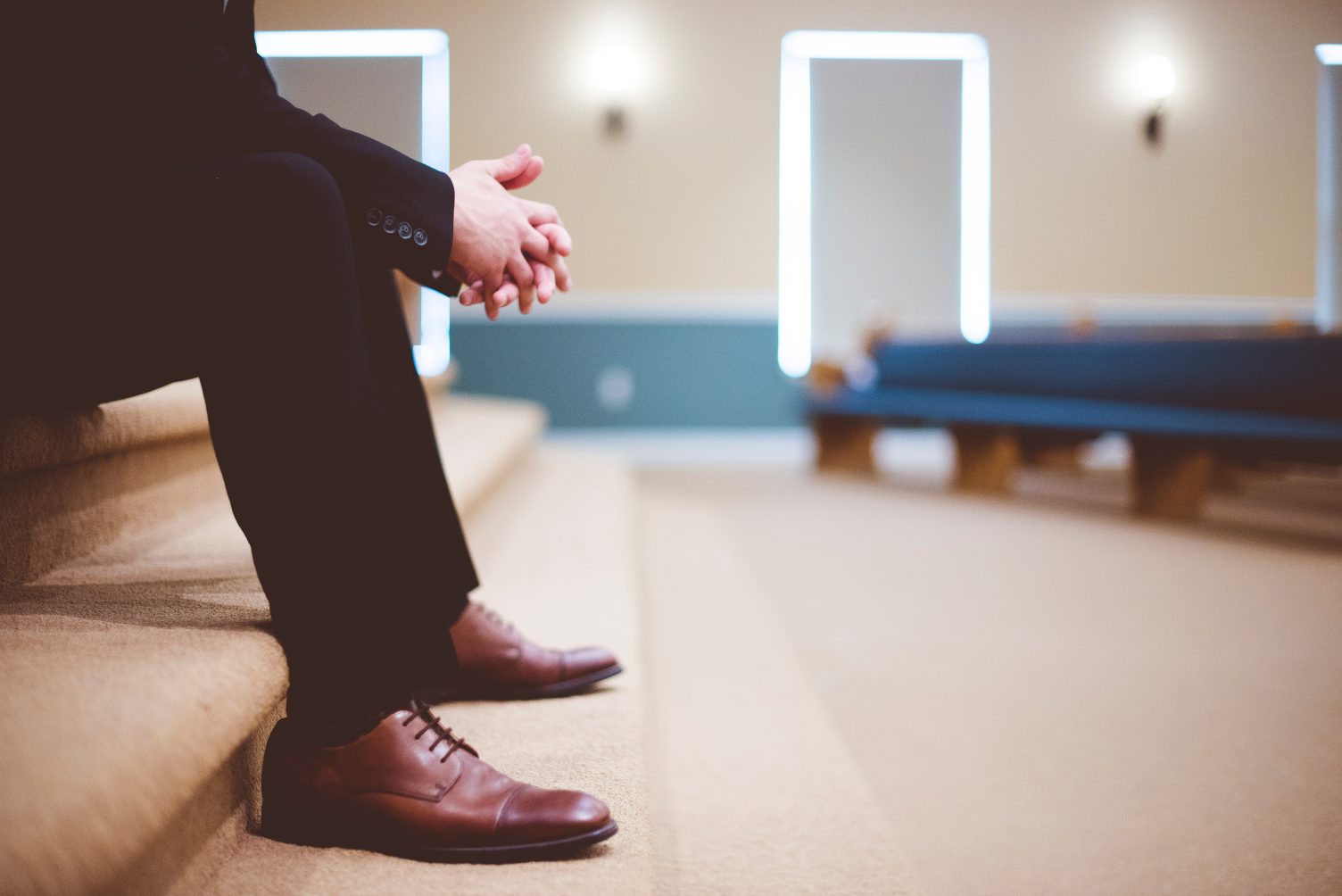








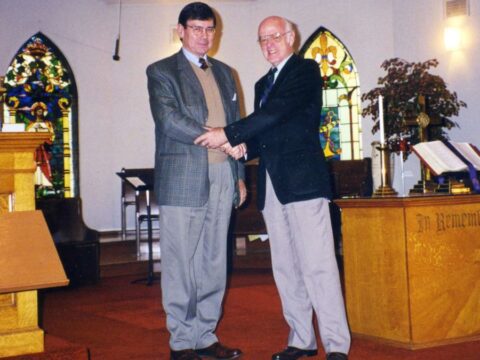
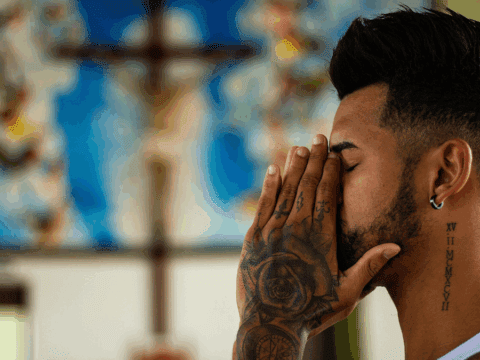
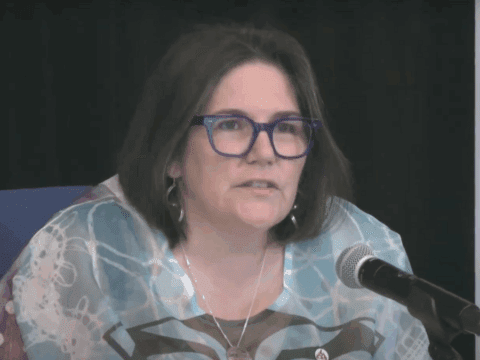
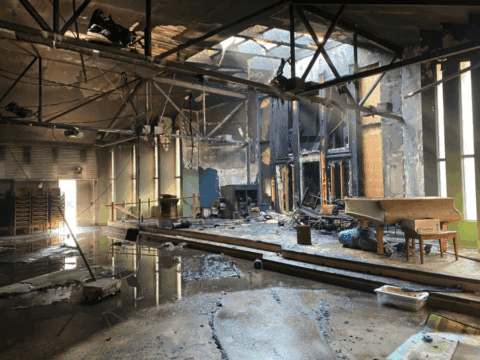

I agree with this perspective, and would like to expand it to include those of Asian and South Asian inheritance.
It has become clear that we white people have zero curiosity about the lives, cultures and Christian faith perspectives of any people beyond those who look like us in the mirror. We also give little thought or credence to the efforts Asian and other cultural communities have put in, and the financial sacrifices they have made in order to become and stay among the United Church of Canada.
I serve a non-white congregation that, to my horror I learned (before presbyteries were eliminated) had not had a presbytery oversight visit for 16 years!! And it seemed that no one noticed!! This community therefore only endures its connection to the United Church…it does not celebrate it. Overall, it seems that the United Church itself feels very much the same way. Yes, we celebrate Asian Heritage month….but all that does is allow white people to feel pleased with how open-minded it is. I have never observed a white congregation reaching out to an ‘ethnic’ one in friendship and understanding. Outsiders have accused the UCCAN of being an exclusive club. I have a hard time refuting that. Let us pray that white people will realize the richness that can come with forging deep connections (not just “celebrating”) other cultures, and the mutual benefits that these expanded relationships can truly offer.
Thank you Judith. You nail it right on! Much appreciated.
As a white straight senior male, I am increasingly targeted by churches, political parties, and others for my sinful supremacy when in fact I live in a poorer subdivision where whites are a distinct minority. My neighbors and I coexist just fine and I’m not eight times as prosperous as they. But I’m tempted to run from the churches and political parties … week after week, month after month, it seems everything I do and have stood for is now deemed wrong. In my community, blacks are 13% of the population and Latinos about 19%. Am I supposed to just disappear or die?
I’d like to look at the topic from a very personal level as I think the discussion is often impeded by our deep discomfort at talking about issues that take us out of our comfort zones.
I will use myself as a rather extreme example. When I was a child I was told that I was not to discuss politics, sex or religion with basically anyone -even close family. My role model was my mother, a meek, mild and passive woman – the epitome of what a proper woman was supposed to be like in the days of her own upbringing. I learned her lessons well. As a passive introvert, I struggle to this day with talking about all the important issues except with my close friends who I suspect are my close friends because I know where they stand on these same issues (and they stand with me). I do not believe that I am unique in this.
I know this can be seen as my “excuse” – and it is. It is also a fact and it is a fact that I have worked on trying to overcome for many years. I also believe that I am not alone. (25% of people are by one reckoning introverts.)
I applaud those who do talk for me. I still dream of the day when I will join you (without dissociating).
I think if the Church is going to mount a reeducation campaign you ought to have more black voices who will challenge the thesis that systematic racism is indeed systemic. A sizable community of such individuals exist in the US. Since much of our own Canadian experience seems to be driven by the US experience and since US organizations like “BLM” and ANTIFA use the US experience to garner popular support for their cause in other countries like Canada, it would be important to hear the counter arguments of Black conservative like Larry Elder. His arguments are available online. In particular his latest documentary called “Uncle Tom” is worth a watch. Bring these views into the dialogue.
Something about a beam in your eye. Growing up in a working-class UC in an immigrant neighbourhood our building was shared between the original old Anglo-ish congregation and two Japanese Canadian congregations, English- and Japanese-speaking. I went to Japanese young people’s. Our Clerk of Session for many years was a POC. The WOHELO and the UCW decided everything. A stalwart of the church was a roofing contractor. There were quite a few same-sex couples. I sympathise with Mr. Kepler. I have many stories both sweet and sad. I saw a picture once of a protest in Russia at the time of the collapse of the Soviet Union – in English “70 Years On The Road To Nowhere”. My Grandfather is in the Mutual Street Arena picture, at the beginning. Class was at the beginning. And now class reborn as identity assets itself again. I read articles like the one here and ask that you not speak for me. A new idolatry just like any idolatry. Instead of the Eternal.